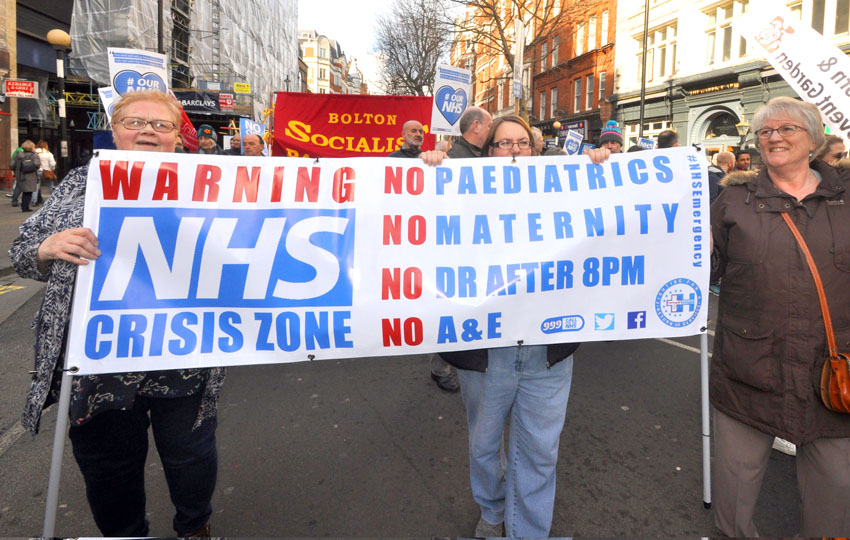
‘FROM HEALTH to social care, everything is at breaking point,’ deputy chair of the British Medical Association Council (BMA), Dr David Wrigley warned yesterday.
‘I spoke to a consultant in a large English town and he said that the whole system is failing and this is because of what has been happening in the last few weeks with the government not putting restrictions in place.
‘Allowing mixing and not bringing in those safeguards means that we are now going to have a very, very worrying few weeks ahead of us and it is of real concern to all.
‘I am not sure that we can say that we are living with the virus in anyway that is sensible.
‘We are now seeing over ten per cent of NHS staff off sick and although this variant doesn’t cause serious illness and death as much as previous variants, the amount of staff and the impact on public services, including the NHS, is huge, and that will impact on patient care.
‘We are hearing of Ambulance Trusts saying that they can’t meet their demands of the service and patients should drive themselves, or get themselves to hospital with heart attacks and strokes.
‘I have never heard of this in the twenty-five years I have worked in the NHS.
‘I really want to emphasise that this is not the fault of the staff in the system.
‘They are working their socks off. Before the pandemic actually, we were in a bad position with huge numbers of doctors, tens of thousands of doctors short, nurses as well, the number of beds we have are well below the amount of beds we should have to care for patients.
‘Germany for example run an 85% bed occupancy whereas we are reaching 100%.
‘In fact patients are on trollies in corridors as a routine now in A&E Departments and it is just simply unacceptable.
‘We shouldn’t be in that position and politicians have got a lot to answer for.’
Meanwhile surgery is being halted at Greater Manchester hospitals as the ‘rising impact’ of Covid-19 and staffing shortages continues to affect NHS trusts across England.
A number of trusts declared critical incidents, meaning they are concerned they cannot provide priority services.
Health bosses in Greater Manchester said about 15% of their workforce were either ill with Covid or isolating.
They said the ‘challenges may get worse’ in the next fortnight.
Greater Manchester Health and Social Care Partnership said the decision affecting 17 hospitals was ‘a temporary measure’ and that cancer care, cardiac and vascular surgery and transplantation would not be affected.
But it said Covid admissions were also rising sharply, with more than one in five patients in some of the region’s hospitals testing positive.
Fiona Noden, chief executive of Bolton NHS Foundation Trust, said the suspension of surgery had been ‘a very difficult decision’ which was taken to ensure ‘we can keep people safe, maintain infection control, deploy staff where they are needed most and keep looking after people who need urgent and emergency care’.
Health minister Gillian Keegan said the government knew ‘this was going to be one of the most pressurised winters’ for the NHS.
NHS trusts are ‘under extreme pressure with the Omicron variant’ and ‘we actually knew that going into this period’, she said.
Elsewhere in England, at least 10 hospital trusts have announced critical incidents since Christmas:
Blackpool Teaching Hospitals NHS Foundation Trust’s chief operating officer said there was ‘very high demand’ for services and ‘long waits’ in emergency and urgency care departments
In Wiltshire, the Great Western Hospitals NHS Foundation Trust declared a critical incident after experiencing ‘sustained high levels of demand’ and concerns over the ‘availability of beds.’
United Lincolnshire Hospitals NHS Trust’s medical director said on Monday there were ‘significant staffing pressures’ due to Covid-related absences, though essential services were still operating.